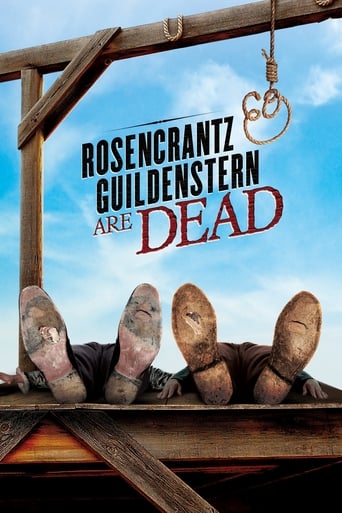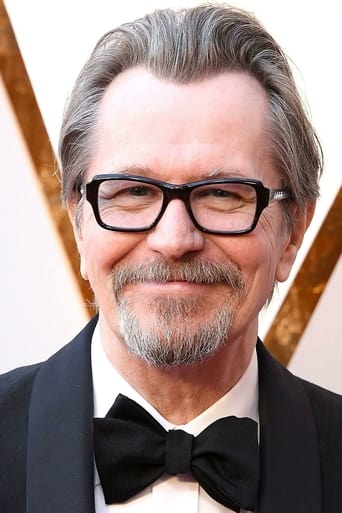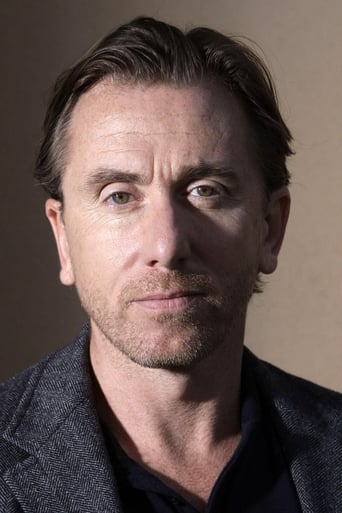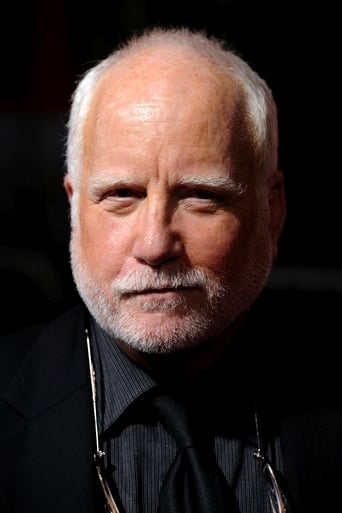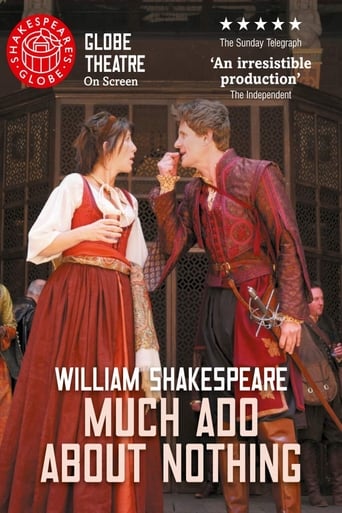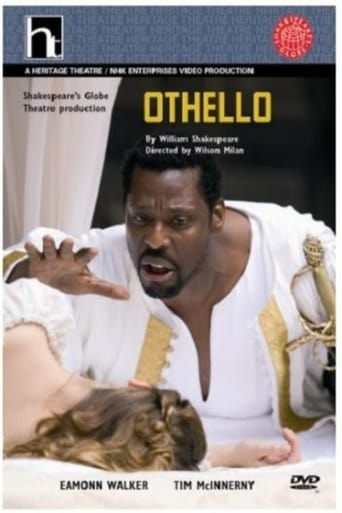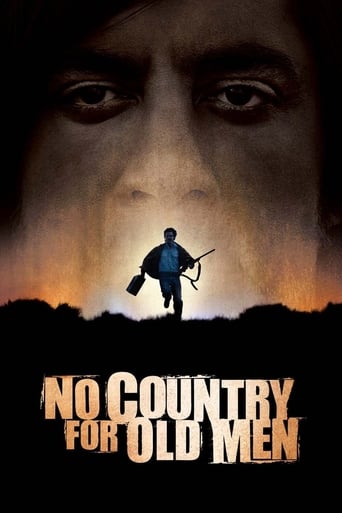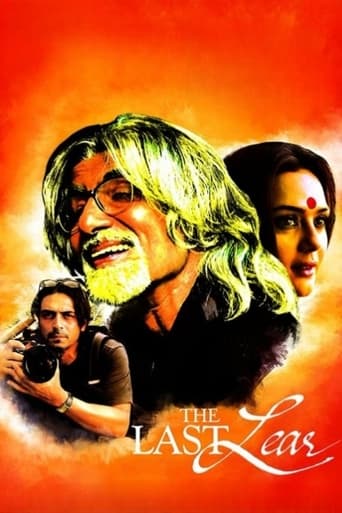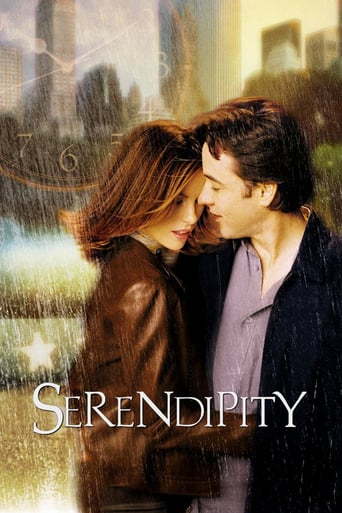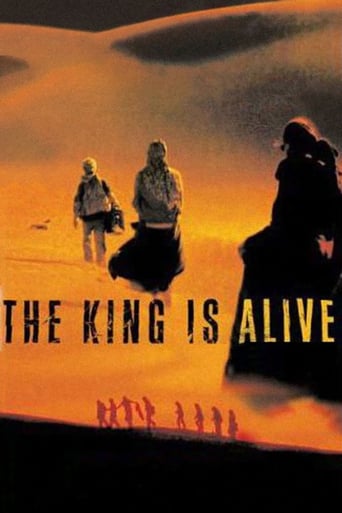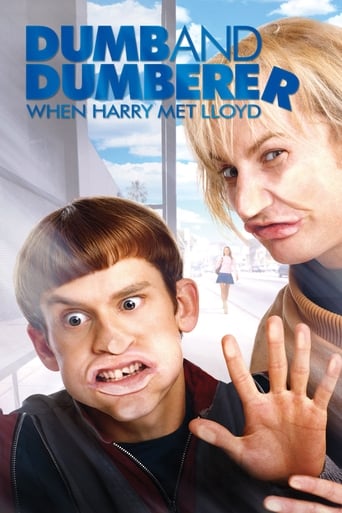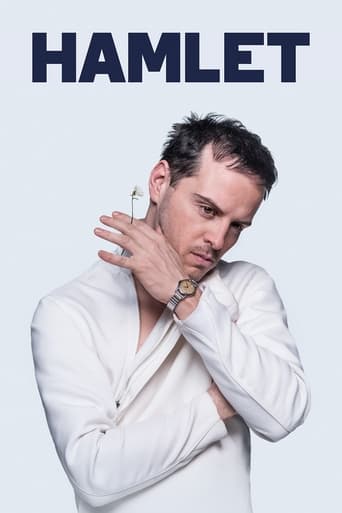Rosencrantz & Guildenstern Are Dead (1991)
Two minor characters from the play "Hamlet" stumble around unaware of their scripted lives and unable to deviate from them.
Watch Trailer
Cast


Similar titles
Reviews
Good story, Not enough for a whole film
As Good As It Gets
This is a coming of age storyline that you've seen in one form or another for decades. It takes a truly unique voice to make yet another one worth watching.
Actress is magnificent and exudes a hypnotic screen presence in this affecting drama.
Rosencrantz & Guildenstern Are Dead (1990) was written and directed by Tom Stoppard. Everyone familiar with Shakespeare's Hamlet knows that it's a play with many subplots. One of the minor subplots concerns two young fellow students of Hamlet--Rosencrantz (Gary Oldman) and Guildenstern (Tim Roth).R & G are famously "sent for" by King Claudius and Queen Gertrude in order to learn what Hamlet is up to. Hamlet immediately understands this, and uses this knowledge for his own purposes. Later, R & G are dispatched to England with Hamlet, with notably bad results for them. The two are really peripheral to the main action of the play, and none of the major characters pays them much attention.Tom Stoppard, who is an absolute genius in his mastery of language, turns the play on its head and puts Rosencrantz and Guildenstern at the center of the plot, with Hamlet, the King and Queen, Ophelia, and all the rest at the periphery. R & G know that they're lightweights compared to the other characters, but they do their best to make sense of their lives and their roles in the action surrounding them. At the same time, they carry on a running verbal game, with arcane rules that only they understand.Both Oldman and Roth are superb. In the supporting cast--remember, this isn't Hamlet-- I would single out Richard Dreyfuss as the Player King for particular praise. (Interestingly, Dreyfuss was equally good when he played King Claudius in the BBC version of Hamlet.)We saw the play on the stage many years ago. As far as I can remember, the film follows the play closely. Both are worth seeing. We saw the movie on DVD. I think it would work better on the large screen, but it worked well enough to make it worth renting or buying. This is an outstanding movie--don't miss it.
Since this is the only film that I have seen that falls into the genre that is known as 'the Theatre of the Absurd' it would be quite premature of me to call it a classic example of the genre, however an example of the genre is what this film is. Based around two minor character's in Shakespeare's Hamlet, the movie moves through the back rooms of Castle Elsinore while Hamlet is played out behind the scenes. The two main characters step into and out of the play as happens in the play, however the entire focus of this movie is on Rosencrantz and Guildenstern.To say that this film gives them a voice is a misnomer. We are reminded, constantly, that they are minor characters and nobodies. As is said at the end of the film, the play ends with the death of a king, a queen, princes, and a couple of nobodies. In fact, when Hamlet is acted out before them by the tradgedians we are told that all in all eight characters die. However they point out that only six corpses are noticed, until their characters are hung right at the end. In the play we do not know of Rosencrantz and Guildenstern's fate until the messenger arrives and says 'Rosencrantz and Guildenstern are dead'.The film is about the meaninglessness of life and the inevitability of death. At the beginning the Tragedian, when talking to the heroes (if that is what one would call them) about what plays are available to watch, he says that the one compulsory theme is the blood 'they all end in blood. Blood is compulsory'. Further, when one of them picks up a coin and tosses it, and it always lands up heads, it is a key to the inevitability of the end. Further, the Tragedian (who provides a commentary throughout the movie, and who, unlike the other characters, cannot die) says that everybody is to die at an appointed time, and they cannot escape it. Even when Rosencrantz and Guildenstern finally discover their fate, it is too late to avoid it. Even though he say at the end 'maybe there was some time that we could have said no' suggests that they had a choice, but in reality, the did not.There is no purpose or plot to the play, which is what one expects from such a play (I should call it a film, but it was originally made as stage play and adapted to the theatre by Tom Stoppard). It simply follows the action of the play that it leeches from. There is direction, and the direction of the play is towards the death of Rosencrantz and Guildenstern. However their entire existence within the play is meaningless, which is what we get from the Theatre of the Absurd, that is the meaninglessness of life.Another aspect of this play is the question and answer. They are always talking about questions and answers, though they do not seem to know what the question is to get the answer that they want. They even play a game on a tennis court called question and answer. The goal is to answer a question with a question, and when somebody asks the wrong question, or gives a statement as an answer, then the other player scores. The scores are the same as with tennis, however this is not a sport or a game that they are playing, but an exploration of life, in particular when the questions we ask are answered with questions, and to give a statement as an answer is incorrect.The final thing that I wish to touch upon (and indeed one could explore quite deeply into this play) is the play within a play. Shakespeare loves to use that technique in his plays, however Stoppard takes it to the nth degree here as in one section of the play, it literally goes off into infinity, and are then brought back to reality with the scream of a guilty king. The whole play within a play is seen with the Tragedian being a major character in the film, but the play that they rehearse and show the king is Hamlet. We know this because we see the ending of the play (the sword fight and the two dead nobodies) before we see the beginning, so that by seeing the ending, we know where it is heading. Further, it is when the scene where the players play the play in front of the king, and it is that point in the play, and in the play within a play, and so on to infinity, that the king reacts (as opposed to the beginning where the the king is killed and his murderer marries the queen, thus denying Hamlet his throne).While I could go on more about Hamlet's motives and such, I feel that this should be left for another time, because this play is not Hamlet, and it is definitely not Shakespeare. The themes in Shakespeare are vastly different to the Theatre of the Absurd, and in fact, the whole concept is anachronistic to Shakespearian literature. However, I will mention that this film does provide a commentary to the play, however it pushes the meaninglessness and absurdity of life to the for front and the question of motive to the background.
In what has to be one of the cleverest, most unusual movies of all time, two characters from "Hamlet" wander into the play and try to figure out what to do. These guys are clearly having a great time with the material, and the movie affirms Gary Oldman, Tim Roth and Richard Dreyfuss as some of the greatest actors of our time. "Rosencrantz & Guildenstern Are Dead" is definitely one that I recommend. I should admit that I've never seen any version of "Hamlet" the whole way through - except a really terrible German TV version that appeared on "Mystery Science Theater 3000" - so I don't actually know the characters' roles in that play, but I still enjoyed this movie 100%. Really good.I would expect a heavy object to fall more quickly than a light object.
Rosencrantz and Guildenstern are on the road to somewhere, although they are not entirely sure where to. They feel like they are in some sort of limbo, a feeling only encouraged by the fact that a tossed coin has just come up heads consecutively over a hundred times. A travelling theatre troop offers them entertainment for money but no sooner have they stepped on the stage than they find themselves in a ballroom of a palace. While they try to work out what is happening they find that they are ever more being drawn into the middle of events that are bigger than them.A mixed curiosity this film, that has some great moments but doesn't work that well as a total product. The narrative throws up some interesting ideas of fate and the roles of minor characters but unfortunately the scenes where it has to overlap with Hamlet that it is not so good and doesn't work. I'm sure he was not making a point but it is hard to ignore that the scenes that are all Stoppard are the best while those that are lifted or adapted from the Hamlet text are weak and appear to be there just because they have to be. It is a shame that the interweaving with the Hamlet narrative doesn't work better because the original scenes have a delicious playful tone to them in regards language and the nature of minor characters; I found these specific scenes to be fun and engaging and only wished the film could have maintained this energy and approach.A big part of these scenes working is down to the delivery and both Oldman and Roth are really good not only with the fast pace of the dialogue but with the "out of it" attitude and sense of detached bewilderment that they need to carry for the majority. It is telling that their scenes are by far the strongest and the supporting cast are not as good in Glen, Roth, Sumpter etc, although I did enjoy Dreyfuss' turn in it.An interesting movie with some great dialogue driven scenes that gives the viewer a lot of fun with language and character. Unfortunately these scenes do not make up the whole film and it has many scenes that are wooden and drag. Still quite fun but not as good as the strongest bits made me think.

